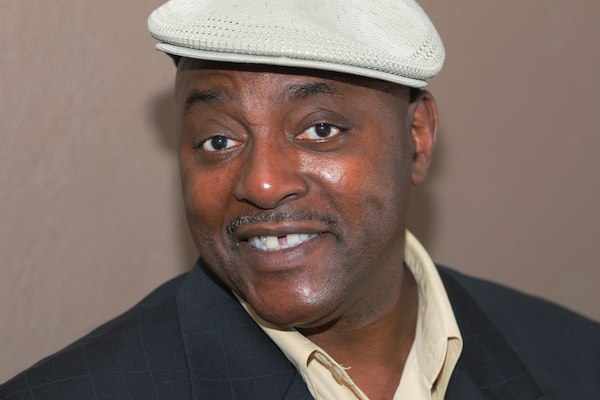In the June issue of OffBeat the cover story was an account of the latest performance of the fascinating Paul Sanchez-directed production Nine Lives: The Musical. My research for the story ended up with far more material than I could use. This is not unusual, but there was a sidebar I wanted to fit in about the making of the Nine Lives album that was just too big. The material is based on an interview with Sanchez about drummer Herman Roscoe Ernest III’s participation in the project, the last session before he died. Here is the touching story in its entirety, as told to me by Sanchez.
“Herman Roscoe Ernest III was originally supposed to play on the whole project. When I was writing the songs three years ago I just saw Herman in the part of Irma Thomas’ drummer. I was later to find out that when Herman was a young fella he did in fact play drums with Irma. The irony was just too heavy. Wilbert Rawlins is a big, powerful, muscle-bulging, handsome African-American man like Herman Ernest was, so three years ago I wrote it for Herman without knowing he was getting sicker and sicker. When I hired him I didn’t know he was nearing the end of his life. He came to Matt’s Perrine’s house to go over the arrangements and his face was quite swollen from the cancer. I couldn’t disguise my reaction. He said ‘It’s all right baby. It hurts but it could be worse.’ My heart just sank because that was the line I was gonna ask him to sing on the song and how could I ask him to sing it now?
“We went into Piety Street studio and we cut. Herman was supposed to play on the whole record. I asked him ‘Do you want out of this?’ and he said ‘No Paul I want to play some music.’ So the first two days he just gutted it out and he was so great, even in pain. Everybody who knew Roscoe could tell you he was always tellin’ jokes. So I’m explaining the songs to him, and I say ‘Okay on this one Matt’s looking for a Bourbon Street stripper feel because this guy is home playing with a vibrator while his wife’s gone. He wants to be a woman.’ Herman says, ‘Oh my god you got me playin’ on that kind of song?’ I said yeah. He said ‘That’s all right baby, when I was a young man I played for Darlene the bubble girl. She was really a man but she dressed like a bitch and she danced in a giant champagne glass filled with bubbles and we played behind her while she stripped. I used to look the other way.’
“On the Irma Thomas song when were cutting the rhythm track Matt [Perrine] walks into the room with electric bass and Herman’s like, ‘Matt? Electric bass?’ Matt researched every bit of this music. For ‘Betsy’s Coming’ he researched 1965 New Orleans jazz, found a piece that was based on the drum solo and put together the song based on this piece—but in this case Herman said, ‘You’re playing electric on this? Matt explained why and Herman said, ‘This is supposed to be 1966. You should be playing acoustic bass.’ Matt stopped. He just smiled and went, ‘Yeah you right.’
“On the second day, producer Mark Bingham came to me and said ‘Herman’s playing real tough but he’s hurting, hurting every song.’ Matt said, ‘Yeah he’s on like five different pain medicines.’ I went to Herman and he’s sweating bullets. I said y’all right? He said ‘Let’s just play, it don’t hurt when I’m playing. So I had to say ‘Okay, but after this I’m gonna let you go.’ So we cut one more track with him—I think he did five songs in all—and then I said ‘Before you leave, can you cut that line on the Irma song, the intro line?’ I told him what it was, he smiled, then he walked in there and he sang it in one take. Everybody knew what was going on. Mark and [lyricist] Colman DeKay and myself just all teared up at how great he was. Herman came back in and typical Herman he cracked a joke. He says ‘You got any more lines about pain, you call me up. I got that covered these days.’ Then he walked out. That was the last time I saw him. He died before he heard the record.”





